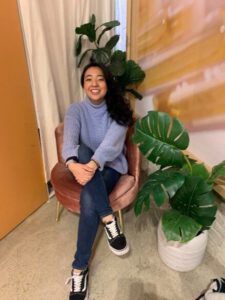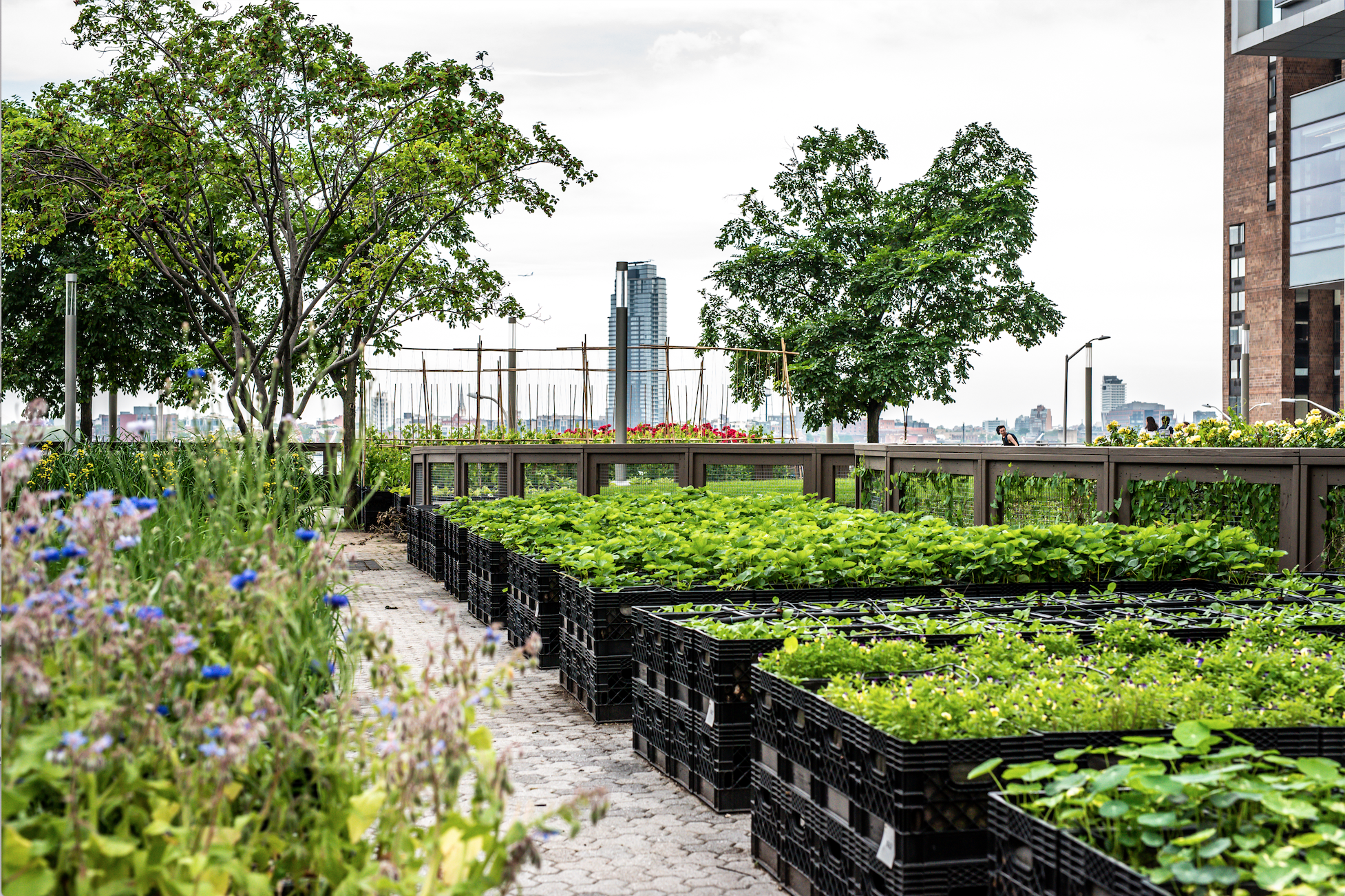
VCN: Tell us a little about yourself. What is your favorite food and why?
CM: I’m a Public Health major at Hunter College, and I’m a Food Justice Leadership Fellow with the CUNY Urban Food Policy Institute, so I advocate for food justice in New York City. I also work in an ophthalmology clinic where I see patients with eye diseases at every age, from my youngest patient at 2 months old to 92 years. I love what I do; helping others is my passion.
My favorite food is chile relleno. It’s a chile poblano that you fill with cheese- there are other states in Mexico where they put beef or barbacoa, every state is different- but where my family’s from, Puebla, we put queso fresco. And then you fry it and eat it with rice. I love this dish because it is one of the first ones my mom learned to cook when I was little and she was learning to be a mom. I remember going to Mexico and this was the first dish my grandma taught her. Every family has their own recipe and little secrets.
VCN: Why did you choose Public Health as your major?
CM: I had to take a two-year break before starting college, and in that time, I was really thinking about what I wanted to do. I wanted to get into the medical field, but I was not interested in biology and chemistry, which are the common majors for the pre-med track. I decided to go with Public Health because of the connection to the community. I am a people person; I love helping patients and people in the community, and I want to be a physical therapist someday, so I felt like this was the right undergrad degree for that. Plus, there are so many internships and other opportunities within Public Health, like the Fellowship.
VCN: Why did you apply for the CUNY Food Justice Leadership Fellowship?
CM: I was curious to explore how this was connected to my major, and I wanted to learn more about why New York- which you’d think is such a big, progressive city- struggles so much with food insecurity. And thanks to the Fellowship, I learned why things are the way they are, I started realizing that McDonald’s was everywhere, and they were targeting me and my community with their marketing, I learned why my neighborhood doesn’t have any supermarkets or even restaurants other than Chinese takeout and other fast food. The Fellowship opened my eyes to reality, to things that you do not really notice, even though you’re living in it.
VCN: What does food justice mean to you?
CM: The first thing that comes to mind is this video of an initiative through CHALK (Choosing Healthy and Active Lifestyles for Kids) and West Side Campaign Against Hunger. They came to the community with a truck full of veggies, and you can see the smiles on everyone’s faces, just because they have access to fresh veggies. Some communities do not even know what some of these vegetables are. I did not know what calabacitas– zucchinis- looked like until I was volunteering to give out food. And then they also taught the community how to cook these vegetables, and to me, that’s food justice- giving knowledge to the people to create new, healthier plates.
VCN: What do you think is the greatest threat to food justice facing NYC today?
CM: I would say income inequality. Low income creates this domino effect and controls all your choices, especially your food choices and the healthy options available to you. For instance, a good-sized salad with all the proteins and nutrients you need will cost you $15, if you want variety and not just iceberg lettuce. And everyone should be able to afford that, but most people can’t.
VCN: What is your ideal vision of the food landscape of NYC in 5 years?
CM: I really wish things were more affordable. I wish that New York City, as diverse as it is, included everyone, regardless of income, age, and other social determinants of health, and didn’t just prioritize the concerns of the people with the money. I wish the City put more money into small projects that centered communities instead of corporations, because the corporations are what’s unhealthy for us. I would like to see rooftop gardens that community members work in to bring local produce to their neighborhoods. Less McDonald’s, more veggies. Fewer people coming into my office because they have diabetes.
VCN: What have you learned from being in the Fellowship? How has it influenced you in your work as a food justice advocate and leader?
CM: Like I said, the Fellowship really helped me realize what was going on in my own life. I work and go to school, and sometimes I only get a 30-minute break, and the fastest thing to do is to go to a chain restaurant, and then unfortunately that becomes a habit. Sometimes you tell yourself, “Okay, I’m going to cook dinner tonight,” but then by the time the afternoon rolls around, you’re too tired, and the whole cycle repeats itself. I heard other people’s stories through the Fellowship and learned that I am not alone. I learned about the struggles of food workers, and I know that if I ever work in the food industry again, that I have rights, and I have a voice.
VCN: Which Fellowship session was your favorite?
CM: Predatory marketing.
VCN: Everyone is saying that!
CM: It really helped me realize that I was a target for these companies.
VCN: How has your relationship with the other Fellows contributed to this experience for you?
CM: I did a presentation with Jade (Huynh, another Fellow), and we had phone calls that went more than an hour, just talking about school, online classes, and quarantine. I really loved the interactions I had with the other Fellows. Everyone made it fun in the Zoom calls, opening up over time and being themselves in the chat. Lots of laughs as we started becoming more comfortable, and they kept me engaged during class. I am excited to hopefully see everyone in person someday.
VCN: Tell us about your internship placement related to the Fellowship and what you are working on.
CM: I’m interning with Worker Justice Center of New York, and I’m going to be reaching out to undocumented farmworkers, to paisas, my people, and advocating for their rights and providing them with resources. A lot of my family members are in the same situation, and if we share this information, it will spread and make change for everyone. A coworker asked me to share what I learned with them, too, so I am really excited to help people who are close to me through this internship.
VCN: Where do you see yourself in 5 years?
CM: I am graduating next year, and I will probably take a gap year before going to med school. I want to study to become a physical therapist. I hope that on the side, I am still doing outreach in the community, maybe going to Mexico. My grandma is from a small town called Papalotla, and little by little, I am seeing the community grow more open-minded. It’s really hard to convince people to trust the medical field, and I want to be a part of that.
